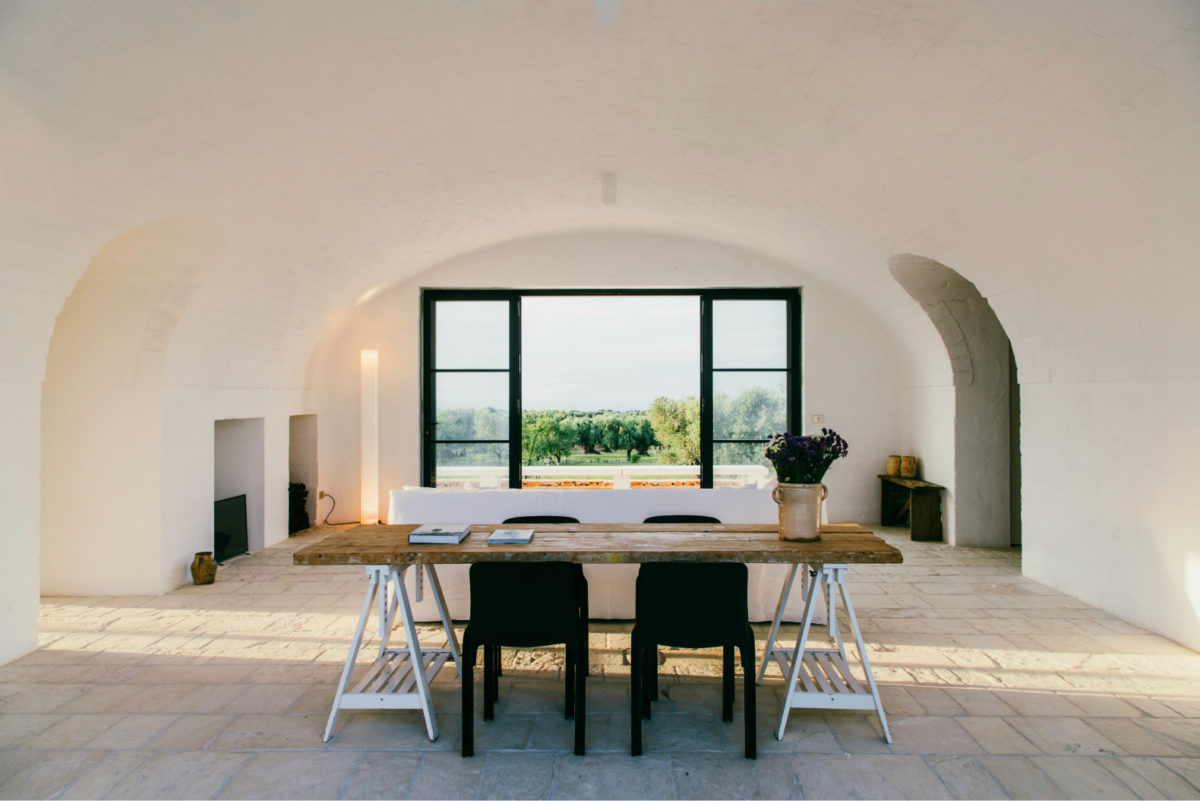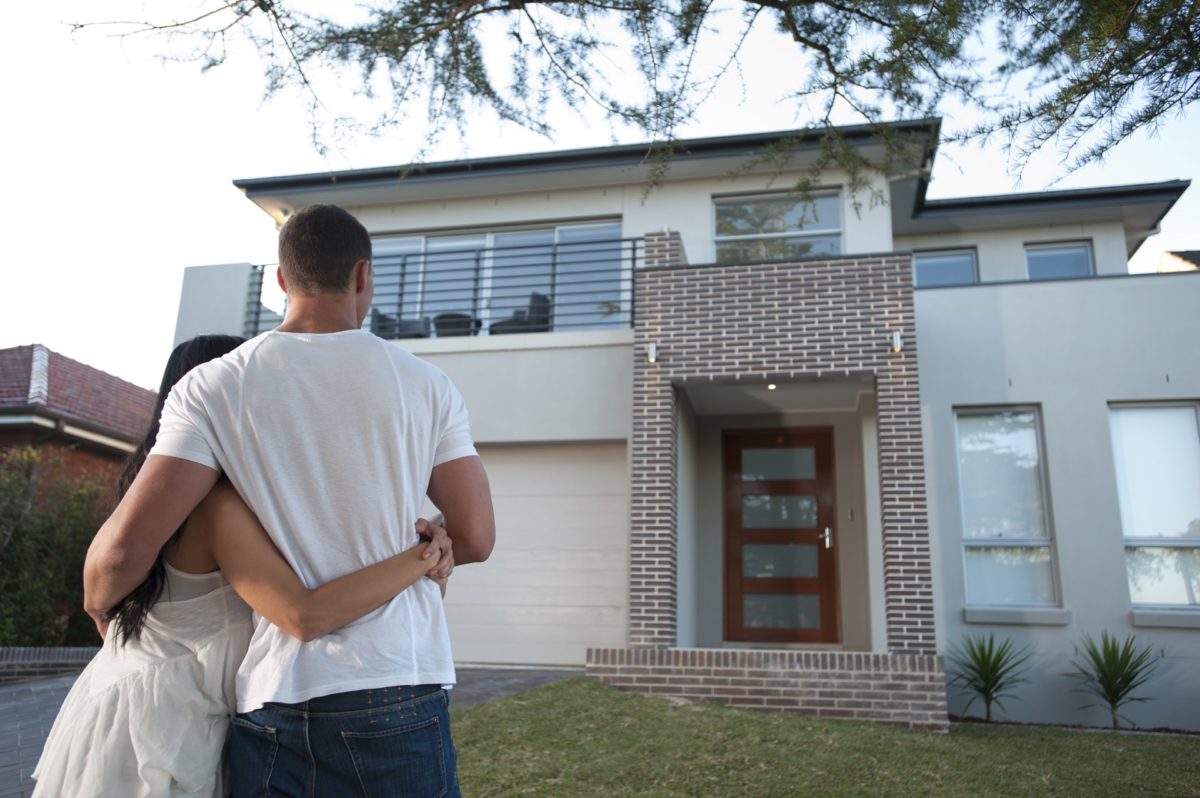Exchanging homes to change holiday locations or to sell a property that no longer interests you. We discover the real estate exchange, the contractual form which is a sort of barter of houses, with or without money to add. Regulations, advantages, costs.

There real estate exchange consists of the opportunity to exchange houses between two owners, yielding the property of a immovable in exchange for another, which can be found indifferently in same city or other location, without any restrictions.
Trade-in it can happen at par, or without having to add a sum of money, when the parties believe that the two properties have equal value, or by adding a fee to match the offer, if the two houses are considered to have a different price.
In addition to being a proposal to be evaluated for those who, for work reasons, are struggling with evaluating the definitive transfer to another city, the real estate exchange is enjoying success also among the owners of holiday homes, who, after having spent the holiday period in one place, decide to change scenery, moving to another holiday resort.
Read also: First home purchase: what steps to take
Real estate exchange: legislation
According to thearticle 1552 of the civil code : “The exchange is the contract which has as its object the reciprocal transfer of ownership of things, or of other rights, from one contracting party to another.”
While not specifying directly that we talk about housing, the opportunity to exchange apartments, houses, villas is considered, therefore real estate property may very well be the subject of the operation.
Real estate exchange: type

There real estate exchange can be of three types:
- exchange between two private subjects: it is a direct exchange.
- exchange between a private individual and a company: exchange on consignment.
- exchange between legal entities with a VAT number.
Exchange at par or with consideration
There big difference it is then determined by the value of the two properties. If the properties have equal value (obviously after an appraisal and agreement between the parties), the operation is really simple as it is one exchange at par, without having to add a sum of money to equal the amount.
In the case, however, the two properties have different value, the subject With the’dwelling having lower quotation, will have to equalize the listing through disbursement of the difference in money. L‘operation, although it is by no means more complicated than the first case, could change, and much, from the practical point of view.
If the difference is minimal (€ 10000/20000 to be clear), most likely it will be two almost similar properties, which differ only in a slightly different size or in the positioning in two different districts of the city.
If, on the other hand, thedisbursement, of either party, either considerable (for example € 90,000), then it could be of a’risky operation for the person who should receive the money. We explain why.
The enormous difference could in fact have the object of the negotiation a property in pitiful condition, on which having to intervene decisively, renovating and therefore spending a large part of the sum received.
You may be interested in: Buying a house from a private individual: advantages and risks
Or, a much smaller apartment located in a poorly served area of the city. But, to underline, it could also be the life choice of a couple of people who live little, for work reasons, in the city, and prefer to have cash to spend on other interests or to share a nest of money.
Real estate exchange: taxes to be paid

The transaction is subject toregistration tax, calculated on the basis offlat having the higher tax value. For example, if two are the object of the exchange apartments, both first houses, L’registration tax is identical, as a rate, for both apartments, and it is equal to 2% of the cadastral value offlat of the higher value.
In case the transfer of the properties take place between a individual subject to VAT and theother to registration tax, the tax advantage is lost. In fact, for the non-VAT transfer, the registration tax is paid in proportion (9% second home or 2% first home) in addition to land registry taxes in a fixed amount (€ 100 euros).
For the transfer of a taxable home, fixed taxes must be paid (register, mortgage and land registry) for a total of € 600 (€ 200 each). Furthermore, for this deed of exchange, the stamp duty must be paid.
Real estate exchange: opinions

Advantages
- when it occurs between two private subjects, therefore exempt from VAT, it is decidedly less expensive than a traditional sale
- the sum of the expenses for the operation are divided between the two subjects
- allows you to change holiday locations (when the operation concerns holiday areas)
- it is a single deed of sale and not two separate ones
- it can be an opportunity when exchanging homes between relatives (as in the case of an inheritance)
- avoid taking out a mortgage most of the time
- if there is a mortgage on one of the two houses, the new owner can decide whether to keep it (take over) if it is useful for the operation or to change it
- for a construction company it is an opportunity to dispose of unsold items
Disadvantages
- if one of the two properties is covered by a mortgage, the operation is more complicated and burdensome
- there is no tax advantage when the transaction is between a private individual and one subject to VAT
- the presence of a mortgage can make the negotiation and conclusion more expensive
Exchanging homes to change holiday locations or to sell a property that no longer interests you. We discover the real estate exchange, the contractual form which is a sort of barter of houses, with or without money to add. Regulations, advantages, costs.

There real estate exchange consists of the opportunity to exchange houses between two owners, yielding the property of a immovable in exchange for another, which can be found indifferently in same city or other location, without any restrictions.
Trade-in it can happen at par, or without having to add a sum of money, when the parties believe that the two properties have equal value, or by adding a fee to match the offer, if the two houses are considered to have a different price.
In addition to being a proposal to be evaluated for those who, for work reasons, are struggling with evaluating the definitive transfer to another city, the real estate exchange is enjoying success also among the owners of holiday homes, who, after having spent the holiday period in one place, decide to change scenery, moving to another holiday resort.
Read also: First home purchase: what steps to take
Real estate exchange: legislation
According to thearticle 1552 of the civil code : “The exchange is the contract which has as its object the reciprocal transfer of ownership of things, or of other rights, from one contracting party to another.”
While not specifying directly that we talk about housing, the opportunity to exchange apartments, houses, villas is considered, therefore real estate property may very well be the subject of the operation.
Real estate exchange: type

There real estate exchange can be of three types:
- exchange between two private subjects: it is a direct exchange.
- exchange between a private individual and a company: exchange on consignment.
- exchange between legal entities with a VAT number.
Exchange at par or with consideration
There big difference it is then determined by the value of the two properties. If the properties have equal value (obviously after an appraisal and agreement between the parties), the operation is really simple as it is one exchange at par, without having to add a sum of money to equal the amount.
In the case, however, the two properties have different value, the subject With the’dwelling having lower quotation, will have to equalize the listing through disbursement of the difference in money. L‘operation, although it is by no means more complicated than the first case, could change, and much, from the practical point of view.
If the difference is minimal (€ 10000/20000 to be clear), most likely it will be two almost similar properties, which differ only in a slightly different size or in the positioning in two different districts of the city.
If, on the other hand, thedisbursement, of either party, either considerable (for example € 90,000), then it could be of a’risky operation for the person who should receive the money. We explain why.
The enormous difference could in fact have the object of the negotiation a property in pitiful condition, on which having to intervene decisively, renovating and therefore spending a large part of the sum received.
You may be interested in: Buying a house from a private individual: advantages and risks
Or, a much smaller apartment located in a poorly served area of the city. But, to underline, it could also be the life choice of a couple of people who live little, for work reasons, in the city, and prefer to have cash to spend on other interests or to share a nest of money.
Real estate exchange: taxes to be paid

The transaction is subject toregistration tax, calculated on the basis offlat having the higher tax value. For example, if two are the object of the exchange apartments, both first houses, L’registration tax is identical, as a rate, for both apartments, and it is equal to 2% of the cadastral value offlat of the higher value.
In case the transfer of the properties take place between a individual subject to VAT and theother to registration tax, the tax advantage is lost. In fact, for the non-VAT transfer, the registration tax is paid in proportion (9% second home or 2% first home) in addition to land registry taxes in a fixed amount (€ 100 euros).
For the transfer of a taxable home, fixed taxes must be paid (register, mortgage and land registry) for a total of € 600 (€ 200 each). Furthermore, for this deed of exchange, the stamp duty must be paid.
Real estate exchange: opinions

Advantages
- when it occurs between two private subjects, therefore exempt from VAT, it is decidedly less expensive than a traditional sale
- the sum of the expenses for the operation are divided between the two subjects
- allows you to change holiday locations (when the operation concerns holiday areas)
- it is a single deed of sale and not two separate ones
- it can be an opportunity when exchanging homes between relatives (as in the case of an inheritance)
- avoid taking out a mortgage most of the time
- if there is a mortgage on one of the two houses, the new owner can decide whether to keep it (take over) if it is useful for the operation or to change it
- for a construction company it is an opportunity to dispose of unsold items
Disadvantages
- if one of the two properties is covered by a mortgage, the operation is more complicated and burdensome
- there is no tax advantage when the transaction is between a private individual and one subject to VAT
- the presence of a mortgage can make the negotiation and conclusion more expensive


